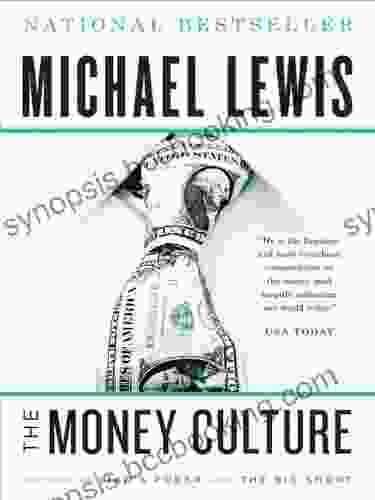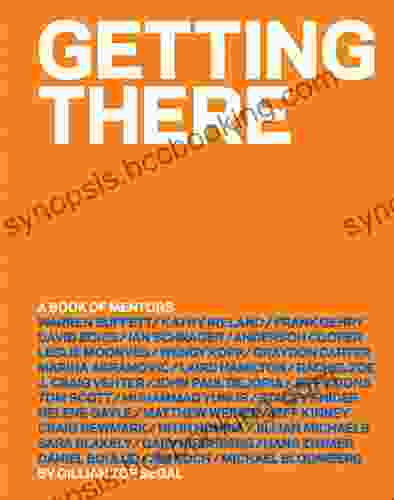Consumer Politics After State Socialism: New Anthropologies of Europe

The transition from state socialism to capitalism in Eastern Europe has had a profound impact on the ways in which people consume goods and services. In the past, consumption was largely dictated by the state, which controlled the production and distribution of goods. Today, consumers have a much wider range of choices, and they are increasingly using consumption to express their political and social identities.
This book examines the new forms of consumer politics that have emerged in Eastern Europe since the fall of state socialism. It explores the ways in which consumption has become a site of political contestation, and the role that consumer activism plays in shaping political outcomes. The book also examines the impact of consumerism on social and economic inequality, and the ways in which consumption can be used to challenge or reinforce existing power structures.
The transition to capitalism in Eastern Europe has led to the emergence of new forms of consumer activism. These new forms of activism are often more focused on local issues than on national or global issues, and they often use creative and unconventional tactics to achieve their goals.
4 out of 5
| Language | : | English |
| File size | : | 5174 KB |
| Text-to-Speech | : | Enabled |
| Screen Reader | : | Supported |
| Enhanced typesetting | : | Enabled |
| Word Wise | : | Enabled |
| Print length | : | 203 pages |
| Lending | : | Enabled |
One of the most common forms of consumer activism in Eastern Europe is the boycott. Boycotts are used to protest everything from high prices to poor quality goods and services. In some cases, boycotts have been successful in forcing businesses to change their practices.
Another common form of consumer activism is the consumer cooperative. Consumer cooperatives are owned and operated by their members, and they provide a way for consumers to get access to goods and services at a lower cost. Consumer cooperatives have been particularly successful in rural areas, where they have provided a much-needed source of competition for private businesses.
In addition to boycotts and consumer cooperatives, there are a number of other forms of consumer activism that have emerged in Eastern Europe. These include:
- Consumer education: This type of activism seeks to educate consumers about their rights and responsibilities, and to help them make informed choices about the goods and services they consume.
- Community gardens: Community gardens are a way for people to grow their own food, and to learn about sustainable agriculture.
- Repair cafés: Repair cafés are places where people can bring their broken items to be repaired, often for free. This type of activism helps to reduce waste and to promote sustainability.
Consumption plays a significant role in shaping political identities in Eastern Europe. In the past, consumption was often seen as a way to express one's loyalty to the state. Today, consumption is increasingly used to express one's individuality and to challenge the status quo.
One of the most visible ways in which consumption is used to shape political identities is through the consumption of luxury goods. Luxury goods are often seen as a symbol of success and achievement, and they can be used to signal one's membership in a particular social class. In Eastern Europe, the consumption of luxury goods has increased significantly since the fall of state socialism, and this has led to a new class of wealthy consumers who are often seen as being out of touch with the needs of ordinary people.
The consumption of luxury goods is not the only way in which consumption is used to shape political identities. Consumption can also be used to express one's political beliefs. For example, some people may choose to boycott certain products or services because they disagree with the company's political stances. Others may choose to buy products or services from companies that they believe are socially responsible.
The role of consumption in shaping political identities is complex and multifaceted. However, it is clear that consumption is a powerful force that can be used to shape political outcomes.
Consumerism has a significant impact on social and economic inequality in Eastern Europe. The transition to capitalism has led to a widening gap between the rich and the poor, and this gap is reflected in the consumption patterns of different social classes.
The wealthy in Eastern Europe are much more likely to consume luxury goods than the poor. They are also more likely to shop at expensive stores and to eat at fine restaurants. This consumption gap helps to reinforce the social and economic divide between the rich and the poor.
In addition to the consumption gap, consumerism can also lead to other forms of inequality. For example, consumerism can lead to environmental degradation, which can disproportionately affect the poor. Consumerism can also lead to the exploitation of workers, who are often paid low wages and work in dangerous conditions.
The impact of consumerism on social and economic inequality is a complex issue. However, it is clear that consumerism is a powerful force that can be used to either reinforce or challenge existing power structures.
Consumer politics is a complex and multifaceted phenomenon that is constantly evolving. The transition from state socialism to capitalism in Eastern Europe has led to the emergence of new forms of consumer activism, the increased use of consumption to shape political identities, and the widening gap between the rich and the poor. These trends are likely to continue in the years to come, and they will continue to have a significant impact on the political, social, and economic landscape of Eastern Europe.
This book provides a valuable overview of the new consumer politics that have emerged in Eastern Europe since the fall of state socialism. It is a must-read for anyone who wants to understand the role of consumption in contemporary Eastern Europe.
4 out of 5
| Language | : | English |
| File size | : | 5174 KB |
| Text-to-Speech | : | Enabled |
| Screen Reader | : | Supported |
| Enhanced typesetting | : | Enabled |
| Word Wise | : | Enabled |
| Print length | : | 203 pages |
| Lending | : | Enabled |
Do you want to contribute by writing guest posts on this blog?
Please contact us and send us a resume of previous articles that you have written.
 Book
Book Novel
Novel Page
Page Chapter
Chapter Text
Text Story
Story Genre
Genre Reader
Reader Library
Library Paperback
Paperback E-book
E-book Magazine
Magazine Newspaper
Newspaper Paragraph
Paragraph Sentence
Sentence Bookmark
Bookmark Shelf
Shelf Glossary
Glossary Bibliography
Bibliography Foreword
Foreword Preface
Preface Synopsis
Synopsis Annotation
Annotation Footnote
Footnote Manuscript
Manuscript Scroll
Scroll Codex
Codex Tome
Tome Bestseller
Bestseller Classics
Classics Library card
Library card Narrative
Narrative Biography
Biography Autobiography
Autobiography Memoir
Memoir Reference
Reference Encyclopedia
Encyclopedia Geoffrey Black
Geoffrey Black Edward O Wilson
Edward O Wilson George Rapitis
George Rapitis Gayle Jessup White
Gayle Jessup White George E Tinker
George E Tinker J D Gauchat
J D Gauchat Gary Brumbelow
Gary Brumbelow James L Swanson
James L Swanson Vicky Alvear Shecter
Vicky Alvear Shecter Gavin Ambrose
Gavin Ambrose Gary Smailes
Gary Smailes Geoffrey Lancaster
Geoffrey Lancaster Gaurav Suri
Gaurav Suri Genna Rae Mcneil
Genna Rae Mcneil Geert Hofstede
Geert Hofstede Pamela J Grace
Pamela J Grace Gene Hamilton
Gene Hamilton Rails To Trails Conservancy
Rails To Trails Conservancy Genny Nuckolls
Genny Nuckolls Manik Sheoran
Manik Sheoran
Light bulbAdvertise smarter! Our strategic ad space ensures maximum exposure. Reserve your spot today!

 Marvin Hayes50 Things You Need to Know About Being an Instructional Technology Specialist
Marvin Hayes50 Things You Need to Know About Being an Instructional Technology Specialist Harry CookFollow ·8.6k
Harry CookFollow ·8.6k Brayden ReedFollow ·9.8k
Brayden ReedFollow ·9.8k Forrest ReedFollow ·15.9k
Forrest ReedFollow ·15.9k Braden WardFollow ·4.9k
Braden WardFollow ·4.9k Ivan TurgenevFollow ·19.6k
Ivan TurgenevFollow ·19.6k Samuel Taylor ColeridgeFollow ·18.8k
Samuel Taylor ColeridgeFollow ·18.8k Louis HayesFollow ·2.5k
Louis HayesFollow ·2.5k Travis FosterFollow ·7.2k
Travis FosterFollow ·7.2k

 Robert Heinlein
Robert HeinleinUnveiling Humanism in China and the West: A Journey...
In our rapidly...

 Brian Bell
Brian BellBlind Boy's Unwavering Struggle Against Abuse and the...
In the tapestry of...

 Craig Carter
Craig CarterBuilding Wealth While Working for Uncle Sam: The Ultimate...
## ### Are you a federal employee who wants...

 Raymond Parker
Raymond ParkerUnveiling the Secrets of Arabic Survival: The Ultimate...
Embarking on a journey to unravel the...
4 out of 5
| Language | : | English |
| File size | : | 5174 KB |
| Text-to-Speech | : | Enabled |
| Screen Reader | : | Supported |
| Enhanced typesetting | : | Enabled |
| Word Wise | : | Enabled |
| Print length | : | 203 pages |
| Lending | : | Enabled |














